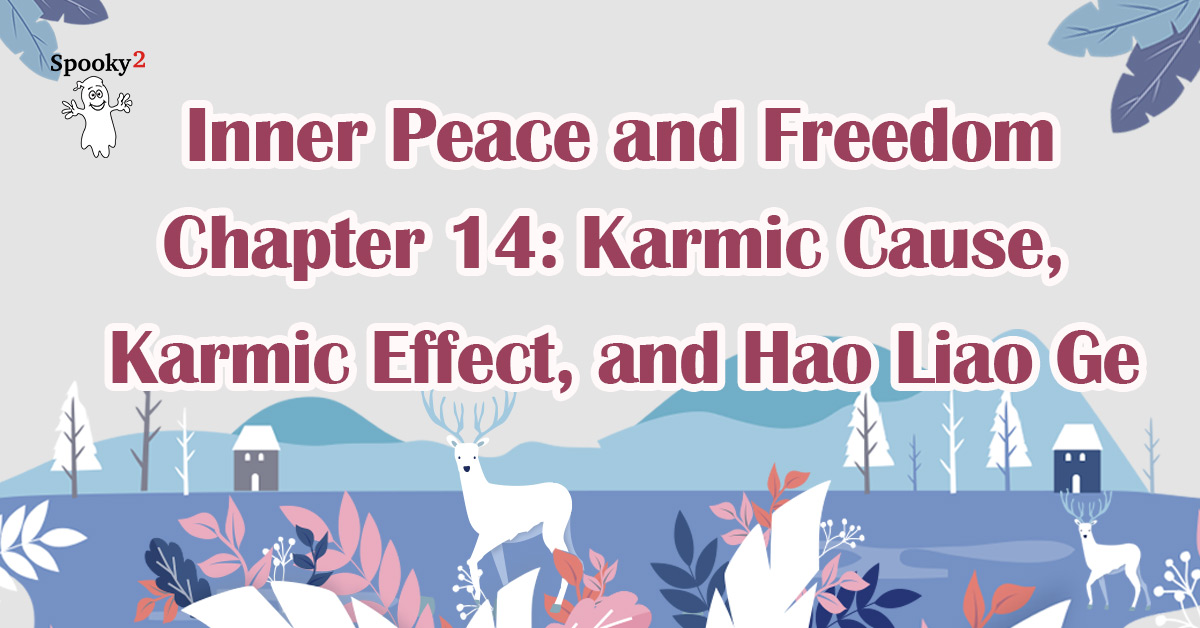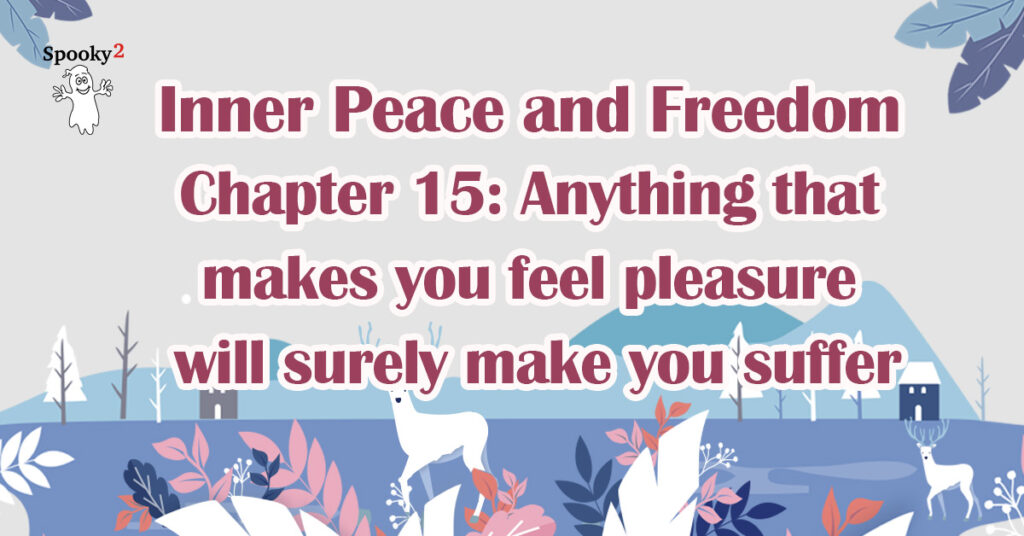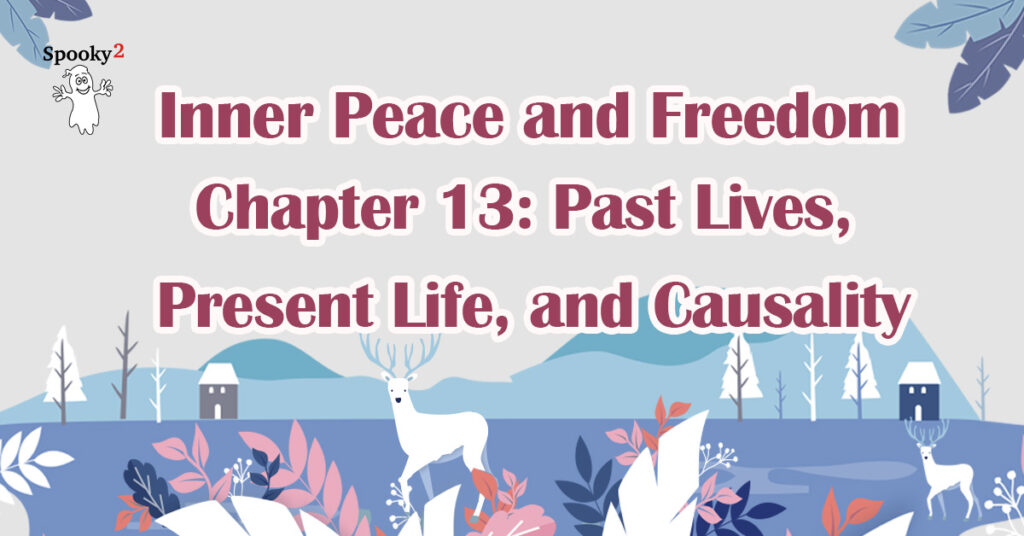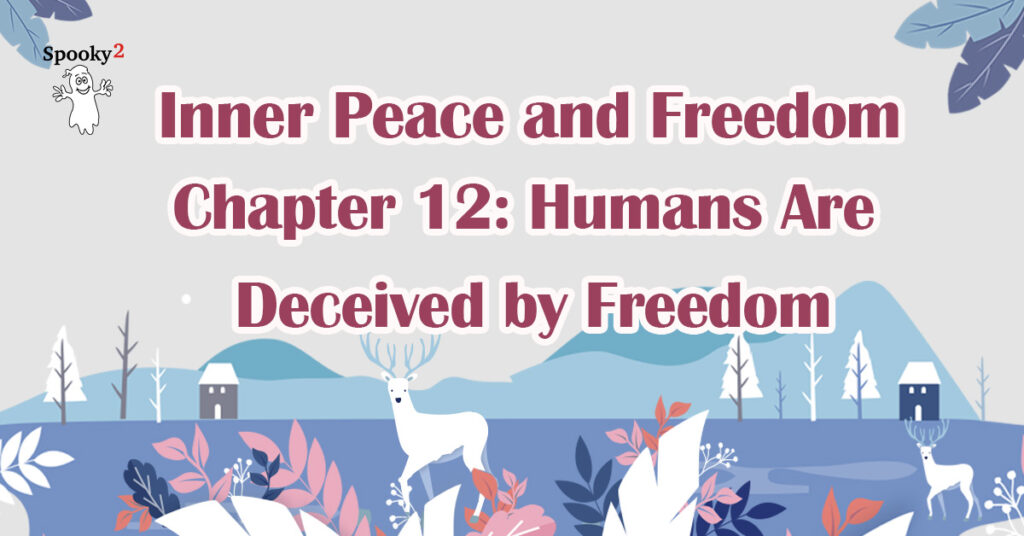How does free will, under the influence of karma, make you unfree?
How does it bind you in the cycle of reincarnation?
How does it shape the course of human history?
How does it give rise to all phenomena in the world?
Let’s first review the main points of the previous chapter.
Although humans have free will, they don’t understand the truth and reality of the universe and life. Thus, their free will tends to act ignorantly, which is blind action.
The inertia energy generated from the actions of free will is called “karma”. When free will is constantly acting, karma is accumulated and karmic habits are formed.
When karmic habits act back upon free will, it is also known as inertial force, or simply karmic force. We know that while free will is acting, it is influenced by karma.
We refer to the function of karma as karmic cause, and the effect of joint actions of free will and karmic cause, as karmic effect. Karmic effects then become new karmic causes, continuing to participate in free will’s actions and giving rising to new karmic effects.
In this way, various and countless karmic causes and effects are generated in our minds. The law of causality will never go wrong.
Let’s take an example. Suppose your home is located near a river, and there are two bridges to reach the town on the other side. One bridge is on the east side of your home, and the other on the west side, both about 200 meters away, with equally good roads to travel. Every day, you ride your bicycle across the river to run errands. Today, you might choose to take the bridge on the east side, while on another day, you might choose the one on the west side. Over the years, the probability of using each of these two bridges would be around 50%. This demonstrates free will.
One day, a new family moves in on the east side, and they have a Tibetan Mastiff. Every morning, when you cross the bridge, the owner would walk the dog on the bridge, which makes you feel afraid. Thus, you stop using the bridge on the east side.
This fear is the karmic cause. Influenced by the karmic cause, your free will changes your behavior.
After several months, you coincidentally meet the owner of the dog and find she is a beautiful actress you admire. From that point on, you overcome your fear and start using the bridge on the east side again, hoping to have a chat with her. In fact, her dog doesn’t bite. In this way, influenced by other karmic causes, your free will changes your behavior once again. Consequently, your inner freedom is affected by karmic forces, making you less free.
Another possibility is that you are not afraid of dogs; in fact, you particularly like Tibetan Mastiffs. So, you start using the bridge on the east side every day to see the dog and even bring some snacks for it. The dog’s owner is an ordinary woman. This continues for several months.
Then one day, you have a small conflict with the dog’s owner and you no longer want to see her. From that moment on, you overcome the desire to see the Tibetan Mastiff and start using the bridge on the west side instead.
Human beings are like this, becoming less and less free under the influence of karma.
Every individual has their own free will. For countless lifetimes, due to each of our thoughts, we have created countless karma, formed various karmic causes, and accumulated countless karmic habits.
Towards other individuals or races, we have accumulated various karmic causes such as affection or aversion, jealousy or contempt, fear or anger. Towards various things, we have accumulated karmic habits such as attachment, desire, greed, and avarice.
All the karmic habits accumulated in the past and present lives, whether positive, negative, or neutral, become the karmic causes for the next rebirth.
After rebirth, the innate potential of the Four Quotients, as well as various talents and interests, personality and temperament, are all karmic effects resulting from the karmic causes accumulated from countless lifetimes.
The karmic forces, karmic habits, karmic causes, and karmic effects of all living beings intertwine and influence each other, forming the course of human history.
Free will, influenced by karmic forces, creates everything, like an artist. Karmic causes and effects grow cycle after cycle, arise and cease due to various conditions, inconceivably, giving rise to all phenomena in the world, like a dancer.
The karmic habits of humans lead to pervasive suffering, giving rise to countless pains and suffering of change (happiness).
Every individual goes through birth, aging, sickness, and death; every family faces joy and sorrow, separation and reunion; every career undergoes rise and fall, success and failure; every heart experiences happiness, anger, sorrow, and joy. The world is like a stage, where a complex and ever-changing drama is constantly unfolding at every moment.
Mountains move, valleys change, sea transforms into fields.
Youthful faces of the past are now adorned with gray hair.
Emotions fluctuate between joy and sorrow, laughter and anger.
Day and night rotate, winter and summer alternate.
Cloudy or sunny, dark or bright, the weather is unpredictable, the sun and moon are chasing each other.
Life is filled with cycles of wealth and poverty, gains and losses, rise and fall, without a fixed pattern.
Relationships are changeable: yesterday’s flattery may turn into today’s conflict.
Humans don’t know whether there are immortals in the world. Some people may believe in the existence of immortals, but they don’t know what kind of beings they are. In their imagination, immortals are beings that live eternally and freely.
In reality, what people truly envy is not immortals, but inner freedom.
Therefore, the original Hao Liao Ge from Dream of the Red Chamber is adapted as follows:
Everyone yearns for freedom, yet they cannot let go of fame and success!
Where are the great ones of days gone by? In grassy graves they lie now.
Everyone yearns for freedom, yet they cannot let go of gold and silver!
Every day, they grumble about not having enough, but when they finally have enough, their eyes close forever.
Everyone yearns for freedom, yet they cannot let go of their darlings!
Day by day, their darlings express love, but once they pass away, their darlings are off with another one.
Everyone yearns for freedom, yet they cannot let go of their children and grandchildren!
Loving parents have been numerous since ancient times, but who have seen truly filial children?



